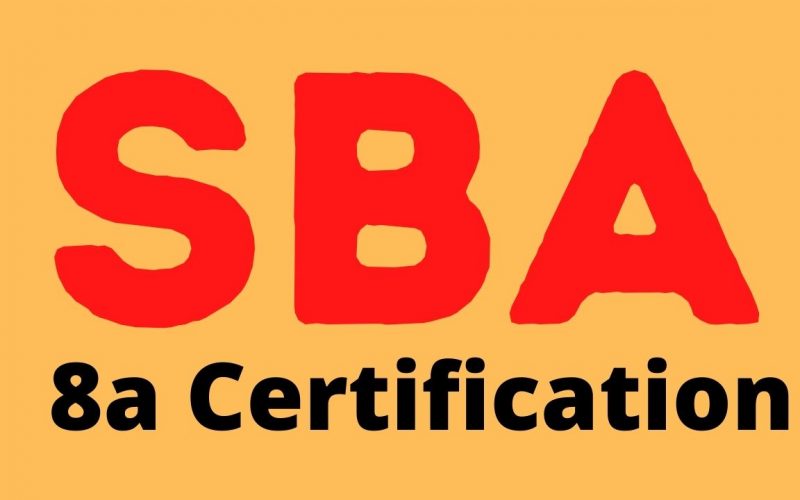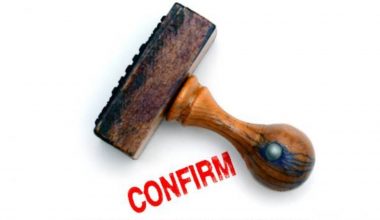Whenever someone mentions that the company has 8a certification, it basically implies that the company applied for the SBA 8a Business Development Program and was found to be eligible for 8a certification by the government because it meets all of the program’s requirements.
The Small Business Association (SBA) of America’s 8(a) certification is a diversity ownership certification. The certification is for enterprises that are at least 51 percent owned and run by SBA-designated socially and economically disadvantaged people. Businesses that are 8(a) accredited receive access to government-limited contracts and are automatically enrolled in the Small Business Administration.
In this article, you are going to learn all that you need to know about 8a certification and how to go about getting certified.
What is 8a Certification?
According to the Small Business Administration, the 8a Business Development program satisfies the federal government’s goal of allocating 5 percent or more of contract money to small, disadvantaged firms.
This federal assistance program helps small enterprises managed by Americans who are both economically and socially disadvantaged. There are various 8a certification benefits when persons who are both economically and socially disadvantaged own and control 51 percent or more of a company (see the next section).
The 8a Business Development Program is a key opportunity for economically and socially disadvantaged small business owners in making this achievable. According to the federal Minority Report, it allows many minorities access to “the economic mainstream of American society.”
With 8a certification, you can get business counseling, procurement advice, mentorship, surety bonding, training, and financial aid, as well as additional technical and management support.
WHAT IS THE SBA 8A PROGRAM FOR BUSINESS DEVELOPMENT?
The Small Business Administration’s (SBA) 8a Business Development Initiative is a government program that assists small disadvantaged firms in obtaining government contracts. In particular, the government’s annual goal is to award at least 5% of all contracts to such firms.
See our article on SBA Grant.
8A PROGRAM BENEFITS
- You have access to both competitive and sole-source set-aside contracts.
- You can bid on contracts as part of joint ventures through the Mentor-Protégé Program, providing you access to larger contracts. Mentorship from more established businesses is also available.
- You gain access to a variety of consulting services to help you build your business faster. Marketing assistance, niche training, high-level leadership development, and company consulting are just a few of the services available. The SBA’s resource affiliates as well as the agency itself provide these services.
- Surplus supplies and property are common in the federal government. With an 8a certification, you’ll be able to get help getting access to those surplus assets.
- You can obtain help with bonding if you need it.
- Allows you to take out SBA-guaranteed loans.
READ ALSO: SBA LOANS Guide: How to Apply, Eligibility (+ Free easy tips)
What are 8a Certification Requirements?
Before you may take advantage of the benefits of 8a certification, you must meet the 8a Program’s eligibility requirements.
Here are 8a certification requirements:
Only small disadvantaged firms can pass the 8a certification eligibility test, as previously indicated. The following are the exact criteria:
- Small business
- First-time participant
- Disadvantaged
- Good character of the principal owner
- Potentially successful
Small Business
Only small market players are eligible for the program. Your three-year average revenue must not exceed a government-imposed limit. Here you can see if your company qualifies for the 8a program.
First-time Participant
You should not apply if your company already has an 8(a) certification or has participated in the 8(a) program.
Disadvantaged
Your business must be a disadvantaged business, as defined above: one that is owned and controlled (with at least 51 percent ownership) by socially and economically disadvantaged people.
Good Character of the Principal Owner
This 8a qualification essentially indicates that the business owner should not have any criminal histories, should not have previously violated SBA terms, should not be debarred or suspended, should not be incarcerated, or otherwise tied to a guilty plea, conviction, or another similar event. It’s also against the law to willfully provide incorrect information for an 8a registration.
Potentially Successful
The company must be able to demonstrate that it has the potential to succeed. This indicates that your company should have been on the market for a while.
Who is Considered Socially and Economically Disadvantaged?
- African-Americans.
- Hispanic Americans.
- Asian Pacific Americans.
- Native Americans.
- Subcontinent Asian Americans.
How Can you Get an 8a SBA Certification?
You must first register with the System for Award Management before proceeding with SBA 8a certification (SAM). To log in to certify.sba.gov, you must first complete this step.
Note that you should obtain the relevant governing documents for your firm, as well as any additional documents required for 8a business certification, before beginning the registration procedure. Financial statements, copies of signed Federal personal and business tax returns, bank statements, personal history statements, and any other papers the SBA considers necessary are examples of this.
When you’re ready, use the above eligibility checklist to see if your company qualifies for the 8a SBA Program, and then submit your 8a certification application electronically at certify.sba.gov.
8a Certification Eligibility Checklist
Here is a quick checklist to see if you qualify for certification:
- Meet the federal definition of a small business, as indicated by the SBA’s size standards
- Never have participated previously in the program
- Have a maximum of $6,000,000 in personal assets, $750,000 in personal net worth, and $350,000 in adjusted gross income
- Are typically African-American, Native American, Hispanic American, Asian Pacific American, or Subcontinent Asian American; if not, can prove social disadvantage through gender, disability, ethnic origin, race, long-term residence outside mainstream society, or other factors.
- Demonstrate potential for success, typically by having been in business for at least two years
- Show strong character and the ability to meet contractual duties..
8(a) Certification Cost
The online application and final certification are both free if you apply for certification yourself. For a price, certification consultants and service providers can complete the application on your behalf.
8(a) Mentor-Protégé Program
The relationship’s goal is to support the protégé company in improving its skills, achieving set goals, competing for contracts, and obtaining technical assistance
Conclusion
The SBA looks at a series of issues when making a decision as to whether or not your claims of economic disadvantage meet the requirements of 13 CFR 124.104 (c). Looking at factors relating to your personal financial condition is critical to receiving your small disadvantaged Status.
FAQ’s about 8a certification
What does it mean to be 8(a) certified?
A small business that is 8(a) certified is qualified to participate in the SBA’s Business Development Program. Certified enterprises are eligible to bid for federal government contracts, get management and technical training, and seek the guidance of a business opportunity specialist.
What does it cost to get 8(a) Certified?
The SBA’s certification website has an application form that can be filled out for free.
How long does it take to get certified?
Your application will be checked for completeness by the regional DPCE for 15 days. If the SBA requires extra information, you will have 15 days to provide it. The application is subsequently forwarded to your local DPCE. The SBA should approve or disapprove your application within 90 days after it is declared complete.






